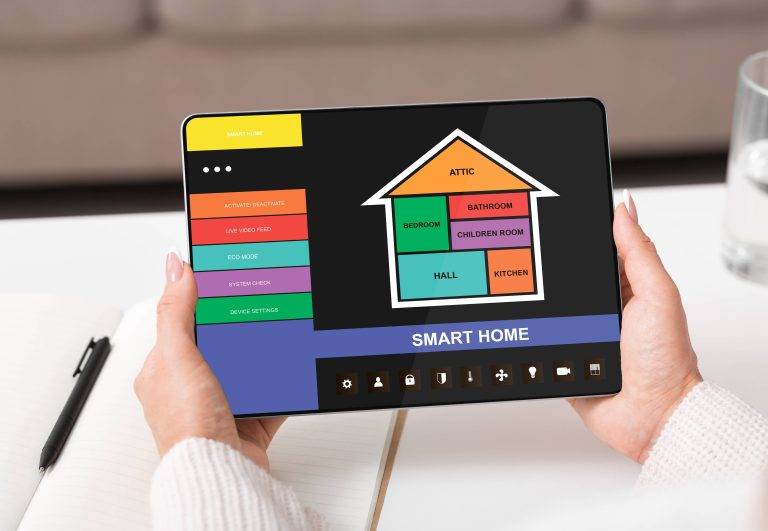
In an era where technology is seamlessly integrating with our daily lives, smart homes are becoming increasingly commonplace. They offer unmatched convenience by automating and simplifying tasks. From controlling lighting, heating, and security systems through a smartphone app to having your refrigerator order groceries when you run low, the possibilities seem endless. Yet, with this interconnectedness comes a significant risk: security. As our homes become smarter, they also become more vulnerable to cyber-attacks. However, one emerging technology could provide a significant boost to smart home security: blockchain.
Understanding Blockchain Technology
Blockchain is often associated with cryptocurrencies like Bitcoin and Ethereum, but its potential applications extend far beyond the financial sector. At its core, blockchain is a distributed ledger technology that allows for secure, transparent, and tamper-proof transactions.
A blockchain consists of a chain of blocks, where each block contains a record of transactions. Once a block is added to the chain, it is extremely difficult to alter the information it contains. This is because each block contains a unique code (a hash) that links it to the previous block. If someone attempts to tamper with a block, it would change the hash, breaking the chain and alerting the network to the fraud.
Furthermore, blockchain operates on a decentralized network, meaning that no single entity has control over the entire blockchain. Instead, control is distributed across all the nodes (computers) in the network, with each node holding a copy of the blockchain. This decentralization makes it highly resilient to attacks and fraud.
The Security Challenges in Smart Homes
Smart homes comprise numerous interconnected devices, often referred to as the Internet of Things (IoT). These devices range from smart thermostats and security cameras to voice-activated assistants and smart locks. Each of these devices collects and transmits data over the internet, creating multiple entry points for potential cyber-attacks.
One of the primary security challenges in smart homes is the heterogeneity of devices and the lack of standardization. Many IoT devices come with minimal security features and may not receive regular firmware updates, making them vulnerable to exploitation. Moreover, traditional centralized security systems can become single points of failure. If a hacker gains access to the central hub or server controlling the smart home network, they can potentially control or disrupt all connected devices.
Blockchain to the Rescue
Blockchain technology offers a promising solution to these security challenges, providing several key benefits that can enhance the security of smart homes:
1. Decentralization: By decentralizing control, blockchain eliminates the single point of failure associated with centralized systems. Each smart home device can operate on a decentralized network, making it significantly harder for hackers to compromise the entire system.
2. Data Integrity: Blockchain ensures the integrity of data by creating a tamper-proof record of all transactions. For smart home devices, this means that any data transmitted and stored on the blockchain can be trusted as accurate and unaltered. This is particularly crucial for security cameras, door locks, and other devices that rely on accurate data to function correctly.
3. Authentication and Authorization: Blockchain can enhance device authentication and authorization processes. Each device on the network can be assigned a unique cryptographic identity, ensuring that only authorized devices can communicate with each other. This can prevent unauthorized devices from gaining access to the smart home network.
4. Secure Communication: Blockchain can enable secure communication between devices by encrypting data transactions. This ensures that even if data is intercepted during transmission, it cannot be read or altered by malicious actors.
5. User Privacy: Blockchain can help protect user privacy by allowing users to control their data. Instead of all data being sent to a central server, users can control what information is shared and with whom. Smart contracts, which are self-executing contracts with the terms of the agreement directly written into code, can be used to automate and enforce privacy policies.
Real-World Applications and Future Prospects
Several real-world projects are already exploring the use of blockchain to enhance IoT security. For instance, the IOTA Foundation is developing a blockchain-based protocol specifically designed for IoT applications. They aim to create a secure, decentralized network where devices can communicate and transact autonomously.
In the context of smart homes, future innovations could include blockchain-based security systems where each device functions as a node in a decentralized network. This would ensure that even if one device is compromised, the overall security of the system remains intact.
Additionally, blockchain has the potential to revolutionize the way we manage and share data in smart homes. For example, electric vehicles (EVs) integrated with a smart home could use blockchain to automate energy management. The EV and home could transact with each other and external energy providers securely and transparently, optimizing energy consumption and reducing costs.
Challenges and Considerations
While the potential of blockchain in enhancing smart home security is significant, there are challenges to be addressed. Blockchain technology is still in its nascent stages, and issues such as scalability, energy consumption, and standardization need to be resolved. Moreover, integrating blockchain with existing smart home ecosystems will require collaboration across various industries, including tech companies, device manufacturers, and regulatory bodies.
Conclusion
As smart homes become more prevalent, ensuring their security will be paramount. Blockchain technology, with its decentralized and tamper-proof nature, offers a compelling solution to many of the security challenges posed by interconnected devices. By leveraging blockchain, we can build a more secure and resilient smart home ecosystem, ensuring that the convenience of smart living is not compromised by security risks. As the technology continues to evolve, the future of smart home security looks increasingly promising, making our homes not just smarter, but safer as well.







